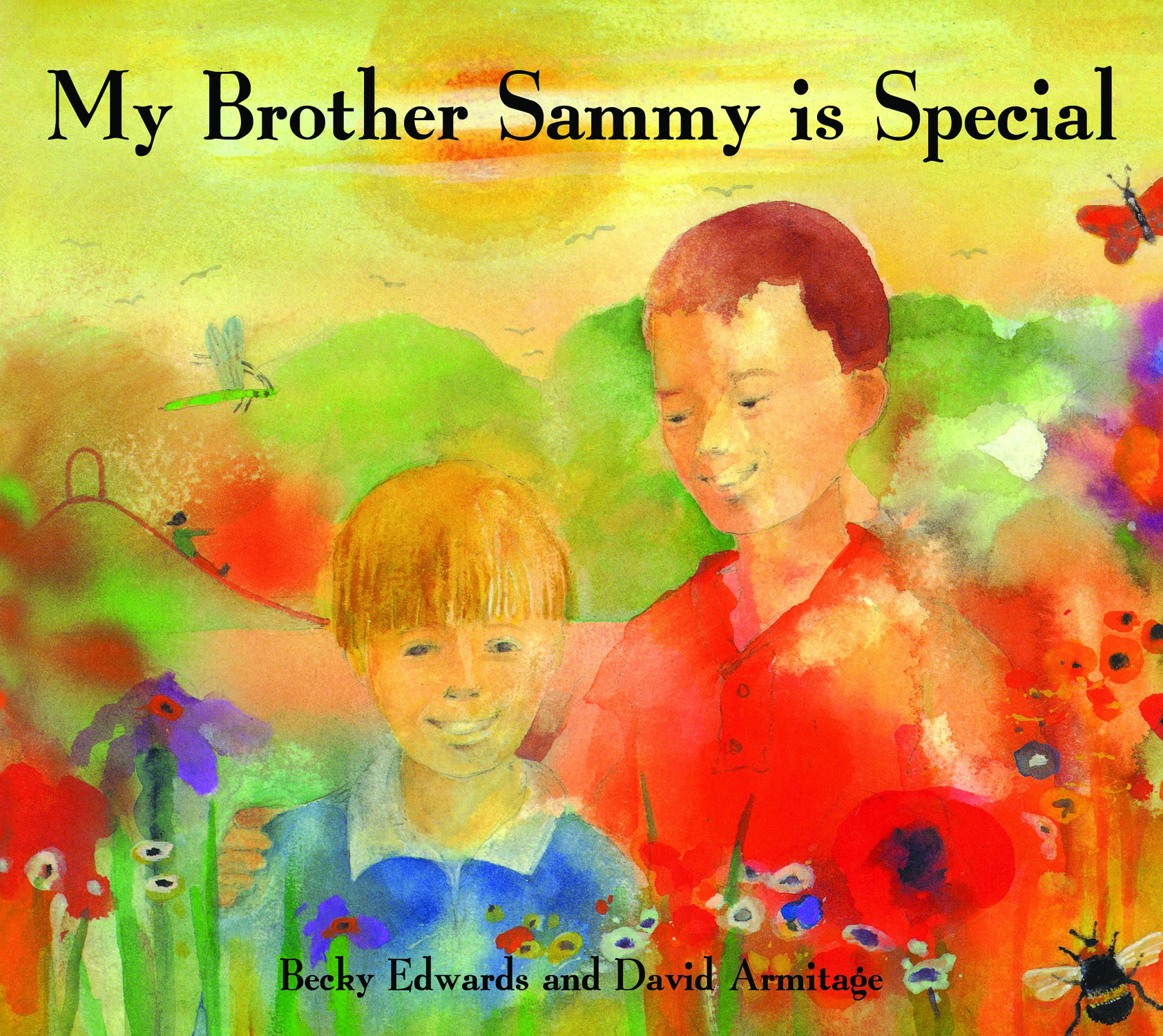I am participating in the Health Activist Writers Month Challenge, in which I publish a post every day for the month of April, based on health-related prompts.
April 7 – Health Activist Choice: Today, I get to write about anything I like. I decided to take the opportunity to review a book that should really be on the bookshelf of every child who has a brother or sister with autism.
I tend to feel a lot of angst when it comes to parenting my younger son, James. James, who is six going on thirty-two, is the neurotypical child in my family. He is the one without autism, the one who is very socially engaging and never stops talking, even when he’s asleep.
James himself does not make parenting difficult. He is as well-behaved as a boisterous six-year-old boy can be, he is making good progress at school, and he gets along famously with his big brother George when they’re not throwing Lego at each other.
What makes it hard is the fact that due to George’s autism, I have to use completely different parenting styles with my kids. What I do makes perfect sense to me, but it can be hard for a six-year-old to grasp why he is being treated differently to his brother. Although my husband and I try our best to explain things to James, a lot happens that James perceives to be unfair.
And so when I got the opportunity to review a book written specifically for the siblings of children with autism, I wasn’t going to pass it up. Written by Becky Edwards and illustrated by David Armitage, My Brother Sammy Is Special tells the story of a boy who is angry about his brother being different. He doesn’t want a brother who is different. He wants a brother who can talk to him and play with him, and who doesn’t wreck his stuff.
In a beautiful twist, Sammy’s brother has a revelation, and instead of trying to force Sammy out into his world, he ventures into Sammy’s world. And so Sammy’s brother achieves the brotherly bonding that he so desperately craves, but not in the way that he had expected.
Having read the book myself, it was time to test it out on a member of the target audience. I snuggled up with James, opened the book, and started reading. The story, with its flowing narration and beautiful illustrations, engaged James’ attention throughout. He was very concerned about where this brotherly relationship would go, and he was visibly relieved that it all worked out in the end.
My Brother Sammy Is Special is written in language that is simple enough for young children to understand, yet descriptive enough to convey the complexity of the special needs sibling relationship. Although the blurb in the dust jacket says that the story is about a boy with autism, the story itself makes no specific mention of the condition. This makes it flexible enough to be effectively used within many kinds of special needs families.
The book is a great launch-pad for discussion. It flows in such a way that parents and their children can pause to ask questions and talk about aspects of the story without losing the flow. For children who may be bewildered by the special needs of their siblings, the story can serve to provide both comfort and understanding. It also describes practical ways in which a typically developing child can try engage with his or her special needs sibling.
I highly recommend this book for any family that has a mix of special needs children and typically developing children. It is a gem – a treat for parents and children alike.
My Brother Sammy Is Special is available for purchase at Amazon.
Many thanks to Skyhorse Publishing for allowing me to review the book, and for providing the cover image.










